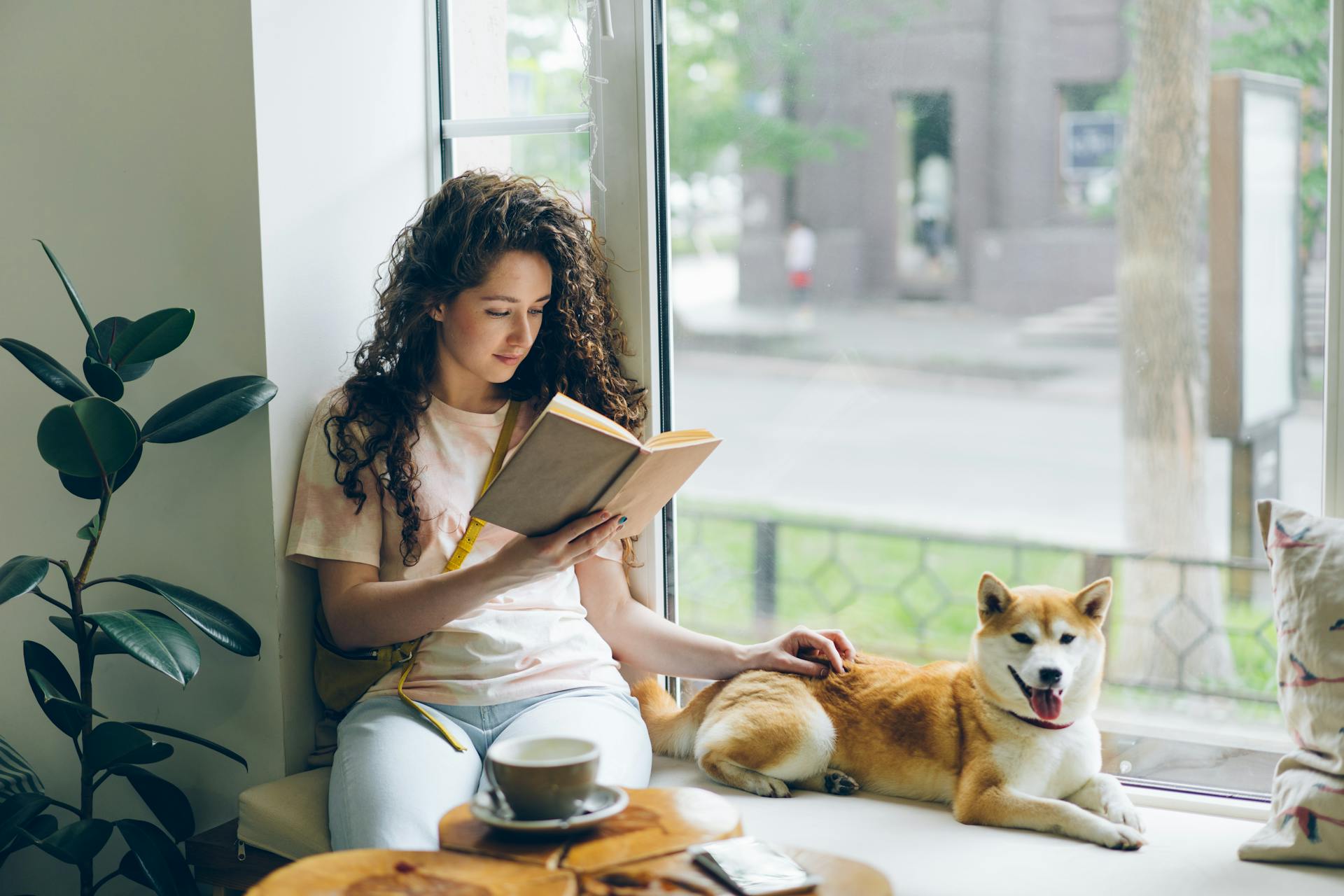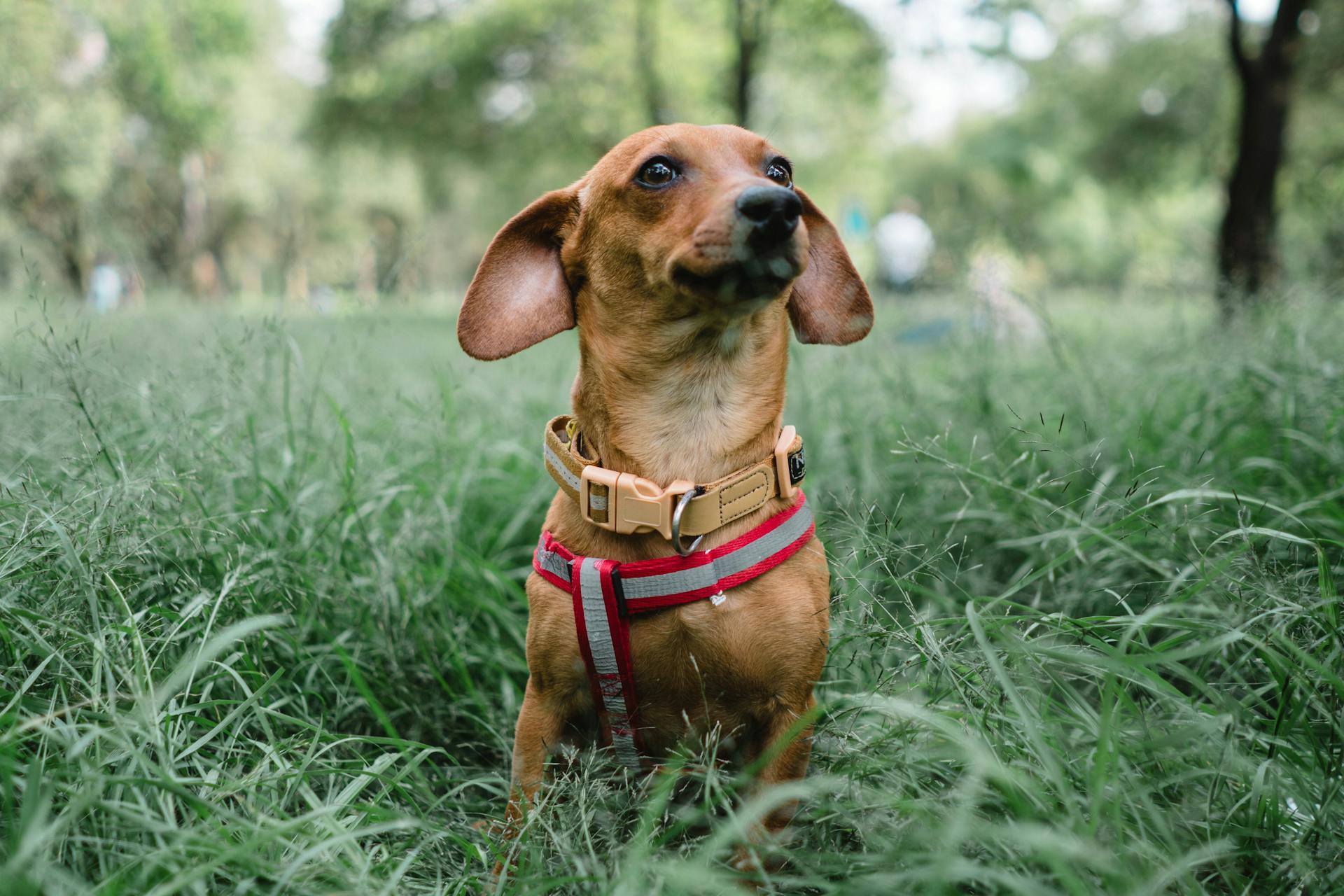
Shiba Inus are known for their strong will and independent nature, which can sometimes be misinterpreted as aggression. They are a fox-like breed that originated in Japan and have been bred to be alert and wary of strangers.
Their hunting instincts and strong prey drive can lead them to be protective of their territory and family, which may cause them to appear aggressive. In fact, according to the article, Shiba Inus are naturally protective of their pack and may defend themselves if they feel threatened.
However, this doesn't mean that Shiba Inus are inherently aggressive dogs. Their loyalty and devotion to their family are unmatched, and they make great companions for the right owner. With proper socialization and training, Shiba Inus can learn to get along with other dogs and people.
Understanding their behavior and needs is key to building a strong and loving relationship with a Shiba Inu. By recognizing their instincts and traits, you can provide the best possible care for your furry friend.
Consider reading: Shiba Inu Family
Are Shiba Inus Aggressive?
Shiba Inus are not inherently aggressive, but their behavior can be influenced by a mix of genetics, training, socialization, and environment. A well-socialized and trained Shiba Inu can be a wonderful companion.
Research has shown that the breed's sociability with humans is actually negatively correlated with child- and stranger-directed aggression, suggesting that less-sociable dogs are more aggressive towards unfamiliar people. This makes sense, given the Shiba Inu's historical use as a watchdog and hunting dog.
The Shiba Inu's tendency to exhibit active behavior in response to sudden movements or sounds is a key factor in their aggression, and this reactivity is positively correlated with all four types of aggression.
Discussion
Shiba Inus are not inherently aggressive, but their behavior can be influenced by genetics, training, socialization, and environment. A study using a questionnaire found that sociability with humans correlated significantly with child- and stranger-directed aggression in Shiba Inus.
The study also found that reactivity to stimuli correlated significantly with all four types of aggression in Shiba Inus, suggesting that highly reactive dogs are readier to express aggression in various situations. This is consistent with behavior clinical practice, where Shiba Inus are often encountered that show aggression triggered by sudden movement or sound.
Shiba Inus are genetically closer to wolves than most western dogs, which may contribute to their high reactivity and aggression. However, this doesn't mean that all Shiba Inus will be aggressive, and proper training and socialization can make a big difference.
In fact, a well-socialized and trained Shiba Inu can be a delightful, loyal companion, as long as they receive a loving and consistent environment.
Frequently Asked Questions
Some people are concerned that Shiba Inus are naturally aggressive, but the truth is, they're not inherently violent. In fact, Shiba Inus are known for being loyal and gentle companions.
Shibas can be wary of strangers and may take time to warm up to new people, which can sometimes be misinterpreted as aggression. This is due to their strong prey drive and protective instincts.
Shiba Inus are highly intelligent dogs that require consistent training and socialization from an early age to prevent behavioral issues. They thrive on structure and clear boundaries.
With proper care and attention, Shiba Inus can make wonderful family pets, especially for experienced dog owners who understand their unique needs.
Behavior Towards Humans and Other Dogs
Shiba Inus are known to be independent dogs that tend not to care about meeting new dogs or people, and usually prefer to stick to themselves and observe from afar.
Socialization is key in shaping a Shiba's behavior, and unsocialized Shiba Inus can show aggression towards other dogs when provoked. Intact female Shiba Inus, in particular, can be aggressive towards both males and females.
According to a study, there is a significant correlation between aggression and reactivity to stimuli in Shiba Inus, with a Spearman correlation coefficient of 0.217 (P-value < 0.001). This suggests that Shiba Inus that are more reactive to their environment are more likely to exhibit aggressive behavior.
Some Shiba Inus can be territorial and may not appreciate the company of unfamiliar dogs, especially those of the same gender. Early and continuous socialization can help mitigate such behaviors.
Here are some notable correlations between aggression and behavioral traits in Shiba Inus, based on the same study:
These correlations highlight the importance of socialization and reactivity to stimuli in shaping a Shiba Inu's behavior.
Naturally Towards Humans?
Shiba Inus are not inherently aggressive towards humans, but individual temperaments can vary. Proper training, early socialization, and a positive environment can ensure a Shiba Inu grows up to be a well-adjusted adult.
A Shiba Inu's aggression towards humans is often a result of poor breeding or socialization. Shiba Inus from bad puppy mill situations can suffer from serious behavior issues that include both dog and human aggression. This highlights the importance of adopting from reputable breeders or rescue organizations.
A dog's behavior is often a reflection of its environment and upbringing. If a Shiba Inu is properly socialized and trained, it's unlikely to show aggression towards humans. Unless provoked, a well-adjusted Shiba Inu should not show any aggression towards humans.
A study found that sociability with humans is negatively correlated with owner-directed aggression in Shiba Inus. This means that Shiba Inus that are more social and friendly towards humans are less likely to show aggression towards their owners.
Here are some key takeaways from the study:
By understanding the factors that contribute to aggression in Shiba Inus, we can take steps to prevent it and create a more harmonious relationship between humans and dogs.
Other Dogs
Shiba Inus can be territorial and may not appreciate the company of unfamiliar dogs, especially those of the same gender.
Early and continuous socialization can help mitigate such behaviors. Rescues and shelters often test their Shiba Inus for dog compatibility, helping adopters find a good match for multi-dog homes.
Socialized Shiba Inus usually get along fine with other dogs. However, unsocialized Shiba Inus can show aggression towards other dogs when provoked, such as from resource guarding.
Some Shiba Inus prefer to stick to themselves and observe from afar, rather than seeking out new dogs or people. This can make them seem aloof or standoffish to others.
Intact female Shiba Inus can be particularly aggressive towards other dogs, regardless of sex.
Types of
Shiba Inus can exhibit various types of aggression, including same-sex aggression, resource aggression, possessive aggression, fear aggression, and protective aggression. These behaviors can be minimized with early socialization.
Same-sex aggression is a common issue in Shiba Inus, where they may display aggressive behavior towards dogs of the same sex. Early socialization is key to preventing this type of aggression.
Resource aggression occurs when a Shiba Inu becomes possessive over food, toys, or other resources. This can lead to growling, snapping, or even biting when they feel their resources are being threatened.
Fear aggression is a more complex issue that can arise from a Shiba Inu's past experiences or environment. It can manifest as avoidance or aggression when they feel anxious or scared.
Protective aggression is a natural instinct in Shiba Inus, where they may become aggressive when they feel their family or territory is being threatened. While this can be a positive trait, it can also be misinterpreted as aggression towards people or other animals.
If your Shiba Inu is already an adult and exhibits any of these aggressive behaviors, it's essential to work with a canine behaviorist to address these issues as soon as possible, especially if they pose a danger to you or other family members.
A unique perspective: When Do Cane Corsos Become Protective
Simba the
Simba the Shiba Inu is a beloved companion, but it's essential to understand his behavior towards humans and other dogs. Properly-bred and socialized Shiba Inus should not show any aggression towards humans unless provoked.
Shiba Inus can growl and snap during feeding times if they have resource guarding issues, which can be corrected with positive training reinforcement methods. Certain cases may require the help of a canine behaviorist.
Socialized Shiba Inus usually get along fine with other dogs, but they tend to stick to themselves and observe from afar. Unsocialized Shiba Inus can show aggression towards other dogs when provoked, such as from resource guarding.
Intact female Shiba Inus can be aggressive to both sexes, so it's crucial to find a balance and solution that fits their best interests.
Managing
If your Shiba Inu is a bite threat, you must contact an experienced canine behaviorist to help both you and your Shiba live safely together.
Underlying medical issues can cause aggression in any dog, so it's essential to take your Shiba to a veterinarian to check for any underlying medical issues that could be at the root of their aggression.
Curious to learn more? Check out: Health Issues with Shiba Inu
Spaying or neutering your Shiba can also help reduce aggression, so if it hasn't been done already, it's a good idea to schedule an appointment with your veterinarian.
To manage aggression in Shiba Inus, it's crucial to be a confident, assertive, and calm owner who can direct your Shiba to the right path and correct them when they stray.
Practicing NILF (Nothing in Life is Free) methods with your Shiba Inu can encourage willful obedience and help manage aggression.
Here are some tips to help you manage aggression in your Shiba Inu:
- Give your Shiba Inu enough exercise and mental stimulation throughout the week.
- Avoid direct eye contact, bending over your Shiba, and lifting or holding your Shiba when they're not comfortable with it.
- Use verbal commands instead of hands to guide your Shiba Inu.
- Trade possessions instead of taking them away from your Shiba Inu.
- Never leave your Shiba Inu unsupervised with children.
By following these tips and working with a canine behaviorist, you can help manage aggression in your Shiba Inu and create a safe and happy living environment for both you and your pet.
Frequently Asked Questions
Are Shiba Inus prone to biting?
No, Shiba Inus aren't more prone to biting than other breeds, but their bites can be powerful if they do bite with intent.
How do I stop my Shiba Inu from being aggressive?
Spaying or neutering your Shiba Inu can help reduce aggression and calm their behavior. Learn more about the benefits of spaying or neutering your Shiba Inu to prevent aggressive behavior
How to train an aggressive Shiba Inu?
To train an aggressive Shiba Inu, start with crate training and consistent commands to establish a strong foundation, while also prioritizing socialization and exercise to address underlying behavioral issues. Begin by rewarding positive behavior with treats and exploring clicker training to help redirect aggression.
Featured Images: pexels.com


